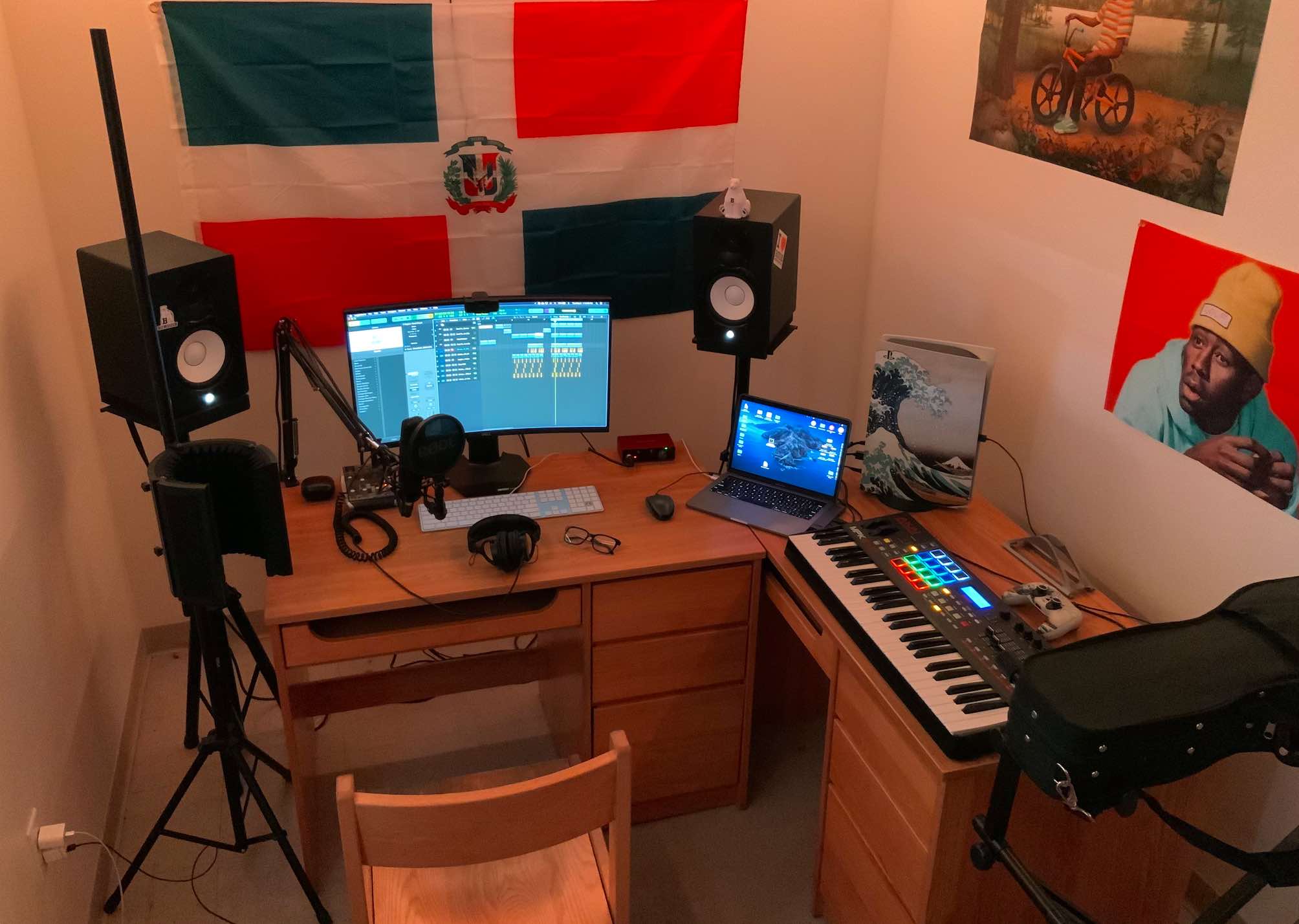Jose Melo ’23 makes and sells beats in dorm room studio
May 7, 2021
 Courtesy of Jose Melo '23
Courtesy of Jose Melo '23Jose Melo ’23 mixed his first beat on his school-issued laptop when he was 13 years old. Today, when he is not doing laboratory work or taking classes for his integrative biology major, Melo sells his dorm-studio-born beats to local artists in his hometown and the greater Boston area.
Although he has only recently begun selling his work, Melo has been musically inclined since elementary school, when he began studying the viola—an instrument that he still plays.
“I’m quite grateful for taking viola classes because it has helped tremendously in my rap and trap production,” Melo wrote in an email to the Orient. “I can now feel and hear when something is not quite in tune or rhythm.”
In conjunction with his instrumental training, Melo became an equally avid music-listener and music-maker.
“Since before my early teens, I remember always listening to a lot of rap and trap music as a way to relax and detach myself from my surroundings,” Melo said. “Vocally, rapping really was not my strong suit, and I learned that pretty early.”
In middle school, Melo used YouTube to explore the work of rappers and beat-makers both in and outside the mainstream. When he discovered rapper Rick Ross’s song “B.M.F.,” he became curious about the process of making and mixing beats.
“When I listened to that song and heard the trumpets in the background and how the beat was constructed, I was so motivated to learn how to make trap and rap beats,” Melo said. “I spent endless amounts of time looking for ways on how to make professional-sounding beats.”
Melo began producing his first beats with digital audio software on his laptop—from Fruity Loops, to GarageBand, to Logic Pro X—and quickly became familiar with the unique features and limitations of each program.
“I have none of those song files,” Melo said. “I wasn’t saving anything at that time, just messing around with the programs. When I started off, I wasn’t really planning on selling beats—that was not even in my mind.”
Over the years, Melo grew his collection of beats and recording equipment, and his room soon reflected his growing passion for music production.
“[The musical equipment] is all stuff that I’ve accumulated over the time; there’s no way I was getting it all in one go,” Melo said. “I slowly started building up my little studio at home in my room—I even have the padding on the wall.”
Throughout high school and the beginning of his college career, Melo found himself growing new connections and cultivating an audience of family, friends and local businesses in his hometown of Mattapan, Boston.
“My brother just knew people in Boston, or I would run into people who were interested in music in Boston because I’ve been doing music for a long time,” Melo said. “It’s kind of bizarre, but that’s pretty much how I started. It’s all pretty luck-based.”
In June, Melo collaborated with his first vocal artist—a connection that he had made while living with his family in Boston. While neither of them had many subscribers on YouTube at the time of the song’s release, Melo was shocked to see the project amass over twenty-thousand views.
“This was the very first big collaboration because I really hadn’t sold my beats like that,” Melo said. “Then I noticed it’s pretty profitable, and I was like, ‘Why am I not selling my beats?’”
As Melo grew more serious about introducing his beats to the market, he also began refining his business model and determining the most efficient way to work with clients.
“Usually what tends to happen is I’ll just make beats, and the beats I really like, I’ll finish them myself; but then the other beats, I’ll show to artists,” Melo said. “They’re going to hit something that they like, and then I’m going to be like, ‘Yep, I can finish this.” We usually cover a lot of ground that way.”
During the spring 2021 semester, Melo has taken advantage of the extra space in his dorm room by converting one of his empty bedrooms into a small-scale version of his home studio.
“I was like, ‘Let me bring stuff from home, and whatever can fit my car is going to work,’” Melo said. “I just brought everything I could, and I kind of set up my little area here.”
While Melo believes that his inability to have in-person meetings with clients due to the pandemic has been constraining, he is optimistic about the future of his business and looks forward to the opportunity to expand his reach.
“It’s really hard with the pandemic because we can’t really roam freely or go to places,” Melo said. “If I sat down and actually did this with no pandemic, I’d probably be doing really well—maybe I could actually release a hit or something.”

Comments
Before submitting a comment, please review our comment policy. Some key points from the policy: